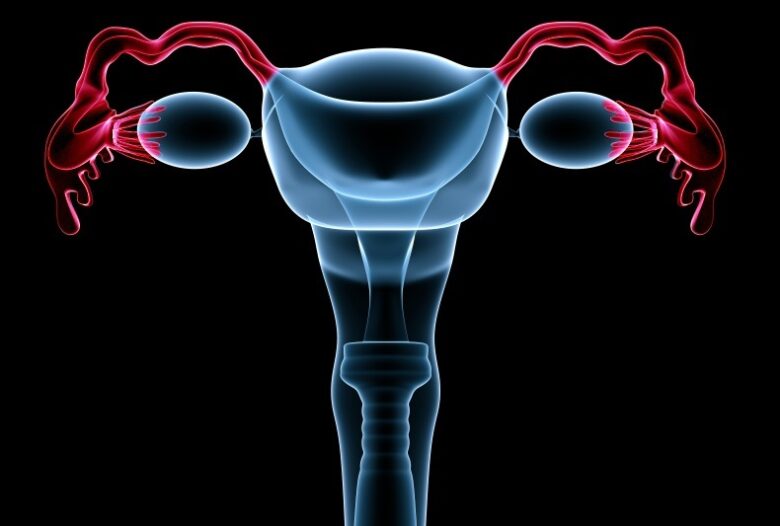First Month of Pregnancy (0-4 weeks)

Not all expectant moms have access to special courses. Midwife doctor Romualdas Šemeta has agreed to run an extracurricular nursery school where she will discuss all nine months of waiting – from what happens in a woman’s body to the couple’s relationship and well-being. “I’m pregnant…”. Sooner or later you will say those words – with excitement or worry or maybe scared. A woman feels her pregnancy about two weeks after becoming pregnant. When she feels and makes sure that she is pregnant, women in particular want to know her baby’s due date. Here is a calculator to find out your due date online.
The very beginning

Of the 200-300 million male cells, only one fulfills its mission and fertilises the egg. The ovum and sperm meet in the fallopian tube. When fusion occurs, the egg divides and begins a 5-day or week-long journey to the uterus. Before reaching the womb, it is already decided who will be born – boy or girl. This is determined by the parental germ cell chromosomes. Once the ovum enters the uterus, it is one of the most critical stages of development. Once established, the egg begins to produce certain substances that enter the bloodstream. A blood test is already possible to determine your pregnancy, even though you haven’t reached your regular period. The urine pregnancy test can be done a little later – after the menstrual period had appeared but did not appear.
Second week
By the second week, the fetal egg is firmly anchored in the uterus. The bladder, umbilical cord and placenta continue to develop rapidly. At just two weeks gestation, fetal blood circulates between the outer germline and maternal blood circulates behind it. The two blood flows are separated by a thin membrane, and during normal pregnancy, fetal and maternal blood do not mix.
Week Three
The embryo is 2 millimeters long. Already, the primitive nervous system with the brain and spinal cord, the heart that begins to beat on the 18th, the gutter ducts, which will later form the face, throat, and inner ear, are already forming.
Week Four
The embryo is already 6 millimeters long. It resembles a tadpole, which continues to form the brain and spine. The kidneys, liver, gastrointestinal tract and primitive umbilical cord appear. The heart begins to draw blood to the liver, and the thoracic bone grows around the immature lungs. Eyes, ears and mouth begin to form.
Physiological changes in the female body

Although pregnancy-specific, it is completely normal and does not equate to disease. Therefore, any change in pregnancy should be treated with caution. Don’t be frightened if you feel profuse saliva. This is not dangerous for the future mom or baby. Rinse your mouth with mint water to reduce saliva. In the first months you may feel sick, vomiting. May cause digestion, constipation, bloating. Try to eat more wholemeal bread, protein and carbohydrate diets. Drink more fluids, especially fruit juice and eat fresh fruits and vegetables. Do not eat foods that do not smell bad to you. Eat often, but little by little. Always have cookies, breadcrumbs or dried fruits on hand to keep your stomach empty. You can also have breakfast in bed. When waking up, it is advisable not to get up immediately, to lie down for at least 20 minutes. Drink a glass of milk or yogurt at bedtime. Brush your teeth with a paste that does not cause nausea. You will notice that you want to urinate more often. More fluids are produced in the body. To avoid getting up at night, drink less in the evening. You may feel tired more often: you will get up harder in the morning, you will want to sleep in the day, and in the evening you will fall asleep immediately after you fall asleep. You consume more energy and need to sleep longer. By the way, fatigue can be due to protein or iron deficiency (low hemoglobin).
Psychological changes
During the first month, psychological changes rather than physiological changes occurred. After all, you have learned the news about a prospective baby and are trying to get used to it. The beginning of pregnancy is emotional ups and downs. Changes in mood are sometimes difficult to grasp. Thinking about motherhood can either make you happy or sad. (Worse if the pregnancy was unplanned and did not go into your immediate life). In some cases, even depression can occur. Nowadays a woman cries more often, becomes more sentimental. You don’t seem to love anyone, you don’t want anything. Sluggishness, sadness, apathy can combine with a decline in intelligence. During the first months, the pregnant woman’s mental state is getting closer to her childish state. A woman feels like a child.

Medication during pregnancy
Take special care with any medicines, even if they are prescribed by your doctor. If available, read the instructions in the original language to see if the medication is really suitable for pregnant women. Almost all chemicals are able to pass through the placenta and accumulate in the fetus.
